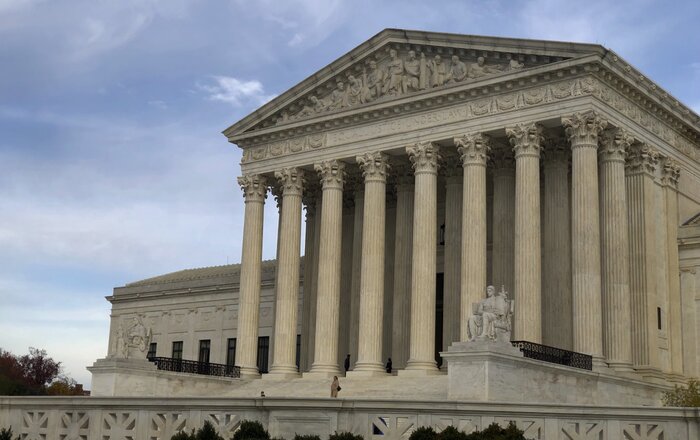
What Makes Us Different

Our Extensive Experience
Our Compassionate Approach
Our Proven Results
Our Client Testimonials
Case Study: $21 million Award
Injury: Brain damage and paralysis due to traumatic impact | Defendant: New York State Highway Department

Personal Injury Lawyers in New Jersey
Practice Areas
![]()
Get Personalized & Compassionate Care
We are a boutique law firm with family values. Call us today for a free consultation.
Rosenblum Law has handled numerous personal injury cases and is familiar with the hardships that clients face after a serious incident. Our attorneys offer a free and informative consultation. Once hired, you can expect full-service representation throughout the entire process. Read more about how an attorney can help with your personal injury case.
Rosenblum Law has decades’ worth of experience helping our valued clients recover money in a variety of cases including money needed for past and future medical bills, lost wages, and compensation for pain and suffering.
What Is Negligence?
Negligence is the failure to exercise the care that would be expected from a reasonable person under the circumstances. Personal injury scenarios often involve negligence that a person can be sued over, but not always. Some of the most common instances are car accidents and medical malpractice. Others include slip and fall accidents, construction mishaps and defective products that lead to injury or wrongful death.
When a motorist commits a traffic violation and it results in an accident, the offending driver can be accused of being negligent. Similarly, if a doctor or nurse fails to follow the appropriate procedures and the result is injury or disfigurement of the patient, the doctor can be sued for negligence and money can be recovered via a settlement or court verdict.
How Do You Prove Negligence in a Personal Injury Case?
To recover damages in a civil case, the plaintiff (person who is injured) will have to prove his/her case in court. To do this, his/her attorney must establish the four necessary elements of negligence: duty, breach, causation, and damages (these are technical legal terms that have been hotly debated in thousands of cases over the years).
Before bringing a negligence case to court, the plaintiff should first consult with an attorney to establish if the allegedly negligent party owes any legal duty or obligation. For example, all drivers owe the public the duty of driving safely and obeying all traffic laws.
Next, the plaintiff will have to prove that the other party breached his/her legal duty or obligation. This means evidence must be brought forth proving he/she acted recklessly or violated a reasonable standard of care. A conviction for a traffic violation, such as speeding, can be evidence of an unlawful breach of duty.
The next hurdle, which is usually the most challenging, especially in complex cases, is proving that there is a direct link between what the accused party did or did not do and the injury sustained by the plaintiff. In other words, one must prove that the negligence caused the injury. For example, if a person dies during surgery, it would have to be proven that the surgeon’s negligence was the actual cause of death. If causation is proven, then the damages can be evaluated in monetary terms.
![]()
Get Personalized & Compassionate Care
We are a boutique law firm with family values. Call us today for a free consultation.
How Much Is My Personal Injury Case Worth?
An attorney can give an estimate of the potential award by looking at the type of damages that the client can sue for. The specific damages and their estimated value will depend on the specific circumstances and facts of the case. Damages is the legal term for the money owed by the liable party to the injured party. Types of damages include:
What Types of Matters Can I Sue For?
- Bus accidents
- Brain injuries
- Bike accidents
- Boat accidents
- Burn injuries
- Car accidents
- Class action lawsuits
- Construction accidents
- Dog bites
- Drowning
- Jail Injuries in New Jersey
- Medical malpractice
- Motorcycle accidents
- Nursing home abuse
- Pedestrian accidents
- Premises liability
- Products liability
- Slip and fall accidents
- Spinal cord injuries
- Toxic substance injuries
- Truck accidents
- Wrongful death
- VRBO injuries
- Airbnb injuries
What Can a Skilled Personal Injury Attorney Do for Me?
There are personal injury lawyers that spend large sums on advertising – but that doesn’t mean that they are the best in the business. Who you choose as your legal team can make a huge difference in how you are treated, how your case is handled, and what the outcome will be.
There are many ways that an attorney can help someone who has suffered a personal injury:
- An attorney can evaluate the injury to determine what type of compensation one can potentially receive from the claim and who it can be recovered from.
- An attorney who is a skilled and experienced negotiator is more likely to obtain a more substantial monetary settlement.
- An attorney can make sure that the claim is given the attention it deserves and that the injured party is compensated in a timely manner by communicating with the other party’s insurance company and/or legal team.
- An attorney can take the matter to trial and present a case with the best chance of winning compensation.
As such, it’s a worthwhile investment of time to research your options when it comes to hiring a New Jersey personal injury lawyer.
What to Do After an Accident
Seek medical attention. Even if it seems at first that one has not been hurt, a slip, burn, crash, or any other type of accident should be followed immediately by a trip to the doctor. In some cases, especially those involving a blow to the head, signs of an injury can go unnoticeable for weeks or months.
While at the doctor, discuss openly and honestly about both the cause of the injury and how one has been feeling since it happened. This is especially true about pain; no matter how minor it may seem, always mention any pain one has been feeling.
It is important not to embellish or exaggerate. At the same time, do not downplay anything either. Simply be thorough and honest.
Furthermore, it’s important to follow the advice of medical professionals following an accident or injury. Failure to do so could reduce any reward one is owed, as a judge or jury may see this noncompliance as contributing to one’s suffering.
Consult an attorney. As soon as possible, contact a personal injury attorney to discuss the situation. One should tell the attorney about the circumstances of the accident, the type of injury, and the diagnosis/advice of any doctors.
In the initial consultation, the attorney will advise whether or not one has a viable case and the potential award amount. An attorney might suggest who one should and should not talk to about the accident or injury. He/she may also discuss which documentation may be needed to help support the case.
It is important to adhere to one’s attorney’s advice just as one would adhere to medical advice. Failure to do so could result in a weaker case or a lower settlement.
Photograph the scene. This is not always easy to do, especially in the wake of a serious auto accident or even in some slip-and-fall accidents. However, it is important to make every effort to obtain photographic evidence after an injury. This might include pictures or videos of broken stairs, the condition of one’s car, ice on the pavement, the placement of objects around a yard or home, etc. Try to capture the scene at both close-up and far away angles, as well as from the perspective one had moments before the accident.
The more images one can get, the better. Videos are also helpful, including dashcam footage or security camera footage. If one is not physically able to get images due to the level of injury or other circumstances beyond one’s control, an attorney may be able to offer suggestions.
Gather other information or evidence. In any personal injury case, it is helpful for one’s attorney to interview any witnesses to the incident. A person or someone acting on his/her behalf should do everything possible to get the names and contact information of anyone who might have seen the events. While it is possible for the injured person to ask questions, an attorney is best qualified to know what to say and what to ask to get the most pertinent and most honest information.
Witnesses aren’t the only evidence one may need. Physical evidence, such as the shoes and clothing the injured person was wearing during a slip-and-fall or premises liability accident, may also be important.
File an incident report. For accidents that occur in a store, restaurant, or any other place of business, it is important to file an incident report. This may require asking for a manager or owner. The incident report should cover details of what happened, when it occurred, who was involved (e.g. a waiter dropped hot soup or a custodian knocked over a bucket of water). Anyone who witnessed the incident should also provide a statement in the report. Be sure to get a copy of the report before leaving the property if possible.
Keep a file of all medical records and expenses. No matter how serious or minor an injury, it is critical that one keeps a record of every doctor visit that is associated with the accident. This should include the outcome of every test, as well as details of doctor recommendations for recovery.
For example, if a person is prescribed 10 weeks of physical therapy, this prescription will be necessary in order to recoup costs associated with those sessions. Moreover, a person should also keep receipts for co-pays, medication (both over the counter and prescription), and medical devices. Even small costs like a cane or sling should be catalogued.
Non-medical costs associated with the accident should also be recorded. For example, if the accident prohibits one from driving, then the cost of taxis or Uber rides should also be documented. Similarly, a person whose injuries prohibit them from cooking could potentially include the increased cost of having prepared food delivered.
Don’t sign anything (without consulting with an attorney). After an accident, many insurance companies reach out to injured parties. A person may be contacted by a claims adjuster, attorney, or other specialists. In many cases, a person may be asked to sign a form. It is not unheard of for such persons to lie about what the form or forms mean and how it affects one’s rights. The bottom line: don’t sign anything without the consent of one’s attorney.
In fact, whenever possible, avoid speaking with anyone representing the persons responsible for the accident. While a person may be tempted to be honest about the facts thinking they have nothing to lose, this is not wise. An insurance company’s goal is to avoid having to make a settlement, so it will use one’s words to in any way possible twist the facts to help its case. Instead, refer them to one’s own attorney.
Frequently Asked Questions
What Is Negligence?
Negligence is the failure to exercise the care that would be expected from a reasonable person under the circumstances. Personal injury scenarios often involve negligence that a person can be sued over, but not always. Some of the most common instances are car accidents and medical malpractice. Others include slip and fall accidents, construction mishaps and defective products that lead to injury or wrongful death.
When a motorist commits a traffic violation and it results in an accident, the offending driver can be accused of being negligent. Similarly, if a doctor or nurse fails to follow the appropriate procedures and the result is injury or disfigurement of the patient, the doctor can be sued for negligence and money can be recovered via a settlement or court verdict.
What if my accident happened on the job?
Most people who are injured in the workplace have the option of filing for workers’ compensation benefits through the employer. These are intended to cover medical bills and a portion of lost wages. If the injury is the result of negligence on behalf of someone other than the employer or a coworker, then the injured person may have an additional personal injury claim against that third party–e.g. the manufacturer of workplace equipment.
Who is going to pay for my medical bills for an accident?
The biggest challenge in a personal injury case is that the victim may be liable for his/her own medical bills until the case is resolved and the damages awarded. Rest assured that the right attorney will fight vigorously to obtain a sizable award as soon as possible.
How much do personal injury lawyers charge?
Most personal injury attorneys work on a commission basis, taking a portion of the total award at the end of the case. For this reason, most attorneys will only take cases where they see a good chance of success. You should make sure the legal team you hire offers a free, no-obligation consultation, and gets paid from the settlement money awarded.
Can you sue for only pain and suffering?
It is possible to sue solely for pain and suffering. For example, in a wrongful death lawsuit involving improper elderly care, the family may have incurred minimal or no economic loss but likely has suffered egregious emotional harm from the untimely death of a family member.
How Do You Prove Negligence in a Personal Injury Case?
To recover damages in a civil case, the plaintiff (person who is injured) will have to prove his/her case in court. To do this, his/her attorney must establish the four necessary elements of negligence: duty, breach, causation, and damages (these are technical legal terms that have been hotly debated in thousands of cases over the years).
Before bringing a negligence case to court, the plaintiff should first consult with an attorney to establish if the allegedly negligent party owes any legal duty or obligation. For example, all drivers owe the public the duty of driving safely and obeying all traffic laws.
Next, the plaintiff will have to prove that the other party breached his/her legal duty or obligation. This means evidence must be brought forth proving he/she acted recklessly or violated a reasonable standard of care. A conviction for a traffic violation, such as speeding, can be evidence of an unlawful breach of duty.
The next hurdle, which is usually the most challenging, especially in complex cases, is proving that there is a direct link between what the accused party did or did not do and the injury sustained by the plaintiff. In other words, one must prove that the negligence caused the injury. For example, if a person dies during surgery, it would have to be proven that the surgeon’s negligence was the actual cause of death. If causation is proven, then the damages can be evaluated in monetary terms.
How Long Do I Have to File a Personal Injury Claim?
In most cases, a person has two years from the date of the injury to file a personal injury lawsuit in New Jersey. This is known as the statute of limitations.
There are some exceptions to this statute of limitations. The first is that if a child is injured the case can be filed up to 2 years after his/her 18th birthday. The same is true of a child whose injuries occurred at birth if the child was born before July 2004. (A child born after July 2004 has until his/her 13th birthday.)
When it comes to medical malpractice on an adult, a person has up to 2 years from the point at which a reasonable person might realize that malpractice has occurred.
How Long Will My Personal Injury Case Take?
The time it can take for a person to receive an award from a personal injury case can vary dramatically. In most cases, it takes around 2 years. But not all cases are that simple. For simple cases involving smaller awards, it is possible to receive money sooner. However, more complex or serious cases may take far longer.
To give a sense of how long it can take, a personal injury case often encompasses the following steps:
- Consultation with the attorney
- Negotiation with the liable parties and/or insurance companies
- Filing court documents
- Discovery (both parties exchange evidence)
- Pre-trial motions and hearings
- Settlement negotiations
- Trial
- Post-trial motions and appeal
- Collecting settlement/judgement
In particular, if the liable party chooses to appeal a ruling, it can delay payment for several more months or years. In addition, if a trial is expected, an attorney may spend a considerable amount of time interviewing and securing expert witnesses who can testify not just to the liable party’s negligence, but also to the level of injuries, amount of suffering, and the potential long-term consequences of the accident.
What Is Comparative Fault and How Does It Impact Personal Injury Cases?
New Jersey applies what is known as the comparative fault model for personal injury cases. This means that the final amount awarded is reduced by the amount that a judge or jury deems the victim to be at fault in the accident.
For example, in a car crash, the victim may have had a window of opportunity to hit the brakes or steer out of the way, either of which could have reduced the level of impact in a head-on collision. This may not have avoided the accident entirely, but it could be deemed a responsibility on the part of the victim that was neglected and thereby contributed to the increased severity of the crash.
Suppose in this scenario the victim is assigned 20% of the accident’s responsibility. When a judge and jury determine the damages to be $1 million, the amount given to the victim will be reduced by 20% for a final settlement award of $800,000.
It’s important to note that New Jersey does not allow a person who is more than 50% at fault to sue another party for an accident. An experienced personal injury attorney can help to assess the amount of liability for each of the parties involved.
What is the statute of limitations for a personal injury lawsuit in New Jersey?
You have two years from the date of your accident or injury to file your personal injury lawsuit. New Jersey’s state law does provide some rare exceptions to this two-year rule (such as when the injured person at the time of the accident is prevented from taking legal action because they are under the age of 18 or have a mental disability), so if it has been more than two years since your accident or injury, it is still advisable to discuss your case with an attorney. On the other hand, if it has been less than two years since the incident, you should contact an attorney sooner rather than later.
Can I switch attorneys in a personal injury case in New Jersey?
Yes. There is no law in New Jersey preventing you from switching attorneys at any point in your personal injury case. Of course, there are practical challenges with switching attorneys when your case is far along. For instance, it can be difficult for an attorney to take over in the middle of a case, particularly when they have to account for another attorney’s past work. For this reason and more, it is to your advantage to pick the right attorney the first time around. But understandably, this is not always possible, so if you are looking to switch attorneys, you should keep in mind that while this can present some challenges, they are probably outweighed by the benefits of having a competent lawyer handle your case.
Can undocumented immigrants sue for personal injury in New Jersey?
Yes. New Jersey courts have taken the stance that in general, a person’s immigration status does not affect their ability to bring a personal injury lawsuit. And simply filing a personal injury lawsuit will not be grounds for deportation. However, this area of the law can be complicated and uncertain. Whether an illegal immigrant can sue for personal injury in New Jersey may depend on the exact circumstances, so it is advisable to discuss your case with an attorney, who will be better positioned to determine whether you are eligible.
Are personal injury settlements in New Jersey taxable income?
Most personal injury settlements are not considered taxable income by the Internal Revenue Service (IRS), but there are some notable exceptions. For example, any interest earned on a settlement is considered income subject to taxation. This is also true of punitive damages, which is when the court orders the at-fault party to pay you a sum of money as a way of punishing them. New Jersey’s state tax rules regarding personal injury settlements are similar to the IRS rules. As with most tax issues, things can get complicated quickly, so it is probably best to discuss the particulars with an attorney.
Can creditors take my personal injury settlement in New Jersey?
No. Your personal injury settlement cannot be taken from your bank account. And you keep your settlement even if you file for bankruptcy. However, you will need to take steps to protect your settlement money, namely keeping it separate from your other earnings on a prepaid debit card.
Does New Jersey have a cap on personal injury cases?
New Jersey does not have a cap on “pain and suffering” damages, meaning a court will not limit how much money a jury can award an injured party in this respect, or at least courts haven’t so far. There is, however, a cap on “punitive” damages, meaning those intended to punish the at-fault party. These damages are limited to five times the amount of “compensatory” damages, such as medical expenses and lost wages, or $350,000, whichever is greater.
Editorial Standards
Rosenblum Law is committed to delivering informative content of the highest quality. All content is subject to our rigorous editorial standards for relevance, accuracy, sourcing, and objectivity. Everything is fact-checked by an editor and reviewed for legal soundness by one of our practicing attorneys prior to being published.



















